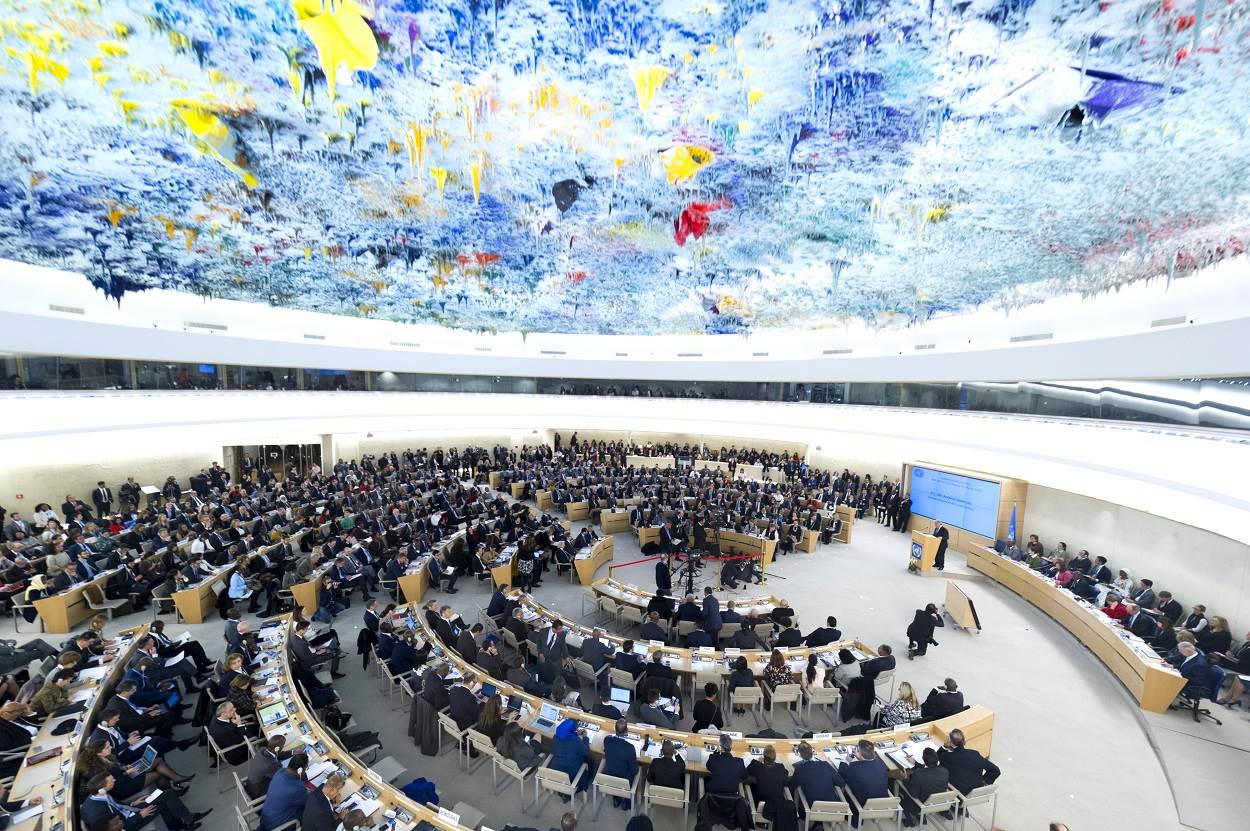Ávarp í umræðu um réttindi og efnahagslega valdeflingu eldri kvenna
Fulltrúi Litháen flutti ávarp þann 28. júní 2019 fyrir hönd NB8 ríkjanna, þ.m.t. Íslands, í umræðu um mannréttindi kvenna þar sem réttindi eldri kvenna og efnahagsleg valdefling þeirra var til umræðu.
41st session of the Human Rights Council
NORDIC – BALTIC STATEMENT
Delivered by Lithuania
Annual full-day discussion on the human rights of women
Panel 2: The rights of older women and their economic empowerment
28 June 2019
Madam High Commissioner, Madam Vice-President, Distinguished Panellists,
I have the honour to deliver this statement on behalf of the Nordic and Baltic countries [Denmark, Estonia, Finland, Iceland, Latvia, Norway, Sweden and my own country, Lithuania].
We thank the organisers for this panel discussion as it highlights the issue of the rights of older women, which despite its importance, is very often forgotten.
Population ageing is a global trend that will affect all regions in the world, both developed and developing countries. Facing this demographic shift, we need to be able to adequately adapt and ensure the protection of older persons’ enjoyment of human rights.
We already see that older persons are very often overlooked in the national and international legislation and policymaking, which leads to limited and fragmented response to the older persons’ human rights situation. Older women’s rights are even more disregarded.
Intrinsic gender inequalities and discrimination against women have a disproportionate and cumulative impact on older women’s rights. Older women are more vulnerable not only to violence and abuse, but also to economic hardship and more likely to live in poverty. Discrimination as well as pay and pension gaps persist into older age leading to lower income and social benefits, such as lack of affordable health care. While women in general spend more time than men on unpaid care and domestic work, research shows that older women are spending twice as much time as older men performing such tasks, while providing care for their children and grandchildren, spouses/partners or elderly parents and relatives. In some countries, older women spend more than four hours a day on unpaid work – more than double the time older men spend on the same activities. Yet, this unpaid work usually remains unrecognized and older women remain marginalised and disadvantaged. Although women’s economic empowerment has been receiving increasing attention from the international community, especially since the adoption of SDGs, the older women’s rights in practice are still invisible to policymakers, both at national and global levels.
We would be interested to hear the views of the panellists: what could be done to increase the visibility of issues that older women face?
I thank you.

